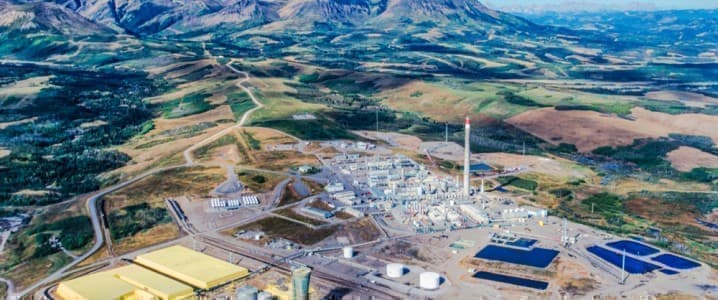Canada has big plans for its energy workers as the government hopes to launch a ‘Just Transition bill’ to help workers employed in oil and gas operations to transition smoothly to the green energy sector. Many countries worldwide are developing initiatives to provide retraining and support for workers looking to move into the renewables industry, as the number of jobs in fossil fuels has decreased in recent years. But this would be one of the first policies to actively address the situation, pointing towards Canada’s aims for a decarbonized economy. However, in recent weeks, the proposal has received staunch opposition from oil companies and fossil-producing provinces who believe it will hinder the plan for continued oil production while global demand is still high.
Canada’s Natural Resources Minister, Jonathan Wilkinson, announced in January that the government has plans to introduce new legislation relating to job opportunities in the green energy transition. He stated: “I’ve said it many times publicly that I do not believe that the challenge we are going to face is that there are workers who are displaced that will not find other good-paying jobs.” Wilkinson added, “I am actually quite worried that there are so many opportunities… we will not have enough workers to fill the jobs.” Wilkinson said that he has been working with Labour Minister Seamus O’Regan and NDP economic development critic Charlie Angus on the bill.
But the announcement of the plan has received a mixed response. While environmentalists strongly support the move, Canada’s oil-producing regions are worried about what it could mean for the industry. The main opposition comes from Alberta, a major oil-producing province. At present, the oil and gas industry contributes 5 percent of Canada’s GDP, a figure that Alberta’s politicians say may be under threat should the bill go ahead.
Alberta's Conservative Premier Danielle Smith tweeted in January: “When I hear the words "Just Transition" it signals eliminating jobs and for Alberta, that is a non-starter!” She also said, “The federal government’s ill-conceived and short-sighted plan is extremely harmful to the hundreds of thousands of Canadians who are supported by the energy sector and will be detrimental to Canada’s economic recovery.” And Sonya Savage, Alberta’s minister of environment and protected areas, said on Twitter: “We expect the federal government to stand up for our world-leading oil and gas employees instead of trying to eliminate their jobs.”
At present, Canada’s oil and gas sector provides about 185,000 jobs. With the provincial election coming up in May, Smith is thought to be using the bill to encourage more residents to vote conservative. Smith wrote a letter to Prime Minister Justin Trudeau last month requesting a meeting in February to come to a joint agreement on the bill. She wrote in the letter, “It would be premature and ill-advised to signal the end of a vibrant, thriving industry that has the ability to reduce Canada's and the world's emissions through technological innovation and increased exports of LNG (liquefied natural gas) and other clean-burning fuels the world so desperately needs.” Smith also asks that Trudeau change the name of the legislation to the “Sustainable Jobs Act” and includes oil and gas jobs in the mix, highlighting the need for natural gas to support a green transition.
The government will likely delay the workforce transition bill until the spring despite many suggestions that it will go ahead. Trudeau first mentioned the job transition bill in 2019 to introduce legislation that will help prevent job loss and encourage the transition of workers from the fossil fuel industry to the green energy sector as opportunities change in line with climate policy.
While the feud over climate policy continues, energy companies are criticizing the local and federal governments for hindering progress in other areas. Alex Pourbaix, the CEO of Cenovus Energy Inc., said that the strained relations between the federal and Alberta governments are preventing meaningful discussions from being held over the investment into carbon capture and storage (CCS) technology. Pourbaix spoke for the Pathways Alliance, a group of representatives from Canada's six largest oil sands producers targeting net-zero emissions by 2050. The organization hopes to develop Alberta as a CCS hub by the end of the decade at a cost of $12.3 billion.
Danielle Smith has repeatedly criticized the liberal government’s federal climate policy, and now Alberta is uncertain about funding any climate change initiatives. Pourbaix explained, “It's very hard to have meaningful discussions with another party when you're lobbing rocks at each other.” He added, "I would like to see the temperature turned down a little bit.”
As Canada hints at further progress in its climate policy, the country’s oil-producing region of Alberta is less enthusiastic about the change. The province’s government believes that oil and gas play an important role in Canada’s future, supporting economic development and helping to ensure global energy security. However, Prime Minister Trudeau’s Liberal government aims to establish policies that prepare for the country for an inevitable green transition. While the two entities continue their feud, many important climate issues are being overlooked, which could threaten the accomplishment of Canada’s climate targets in the coming years.
By Felicity Bradstock for Oilprice.com
More Top Reads From Oilprice.com:
- Germany’s $2 Trillion Economic Miracle at Risk
- Chinese Demand Will Drive Oil Prices This Year
- Goldman: The Fed Is Approaching A “Critical Inflection Point”

















